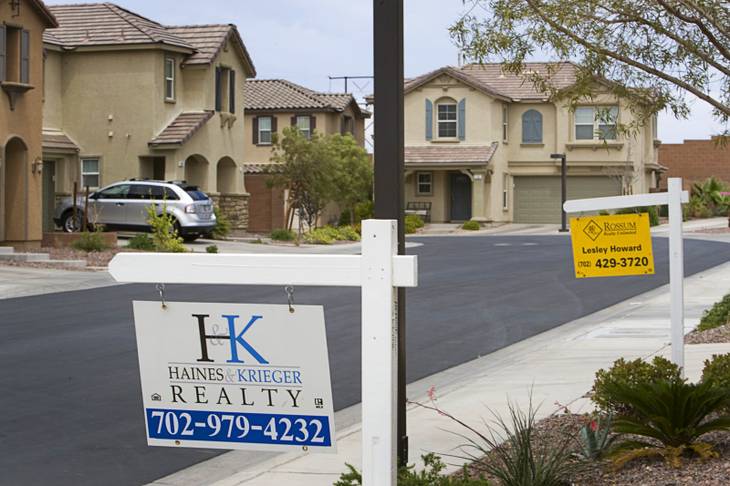Nevada homes not only were the most overvalued in the country at the peak of the housing bubble last decade, but prices are among the most inflated now, new data show.
Homes statewide are 15 percent overvalued, tied for highest in the nation with North Dakota and Hawaii, according to analysts with Fitch Ratings.
Reno homes are 20 percent overvalued; Las Vegas homes, 14 percent.
Rhode Island is at the bottom of the pack among the states and Washington, D.C., with homes 14 percent undervalued.
At the peak of the 2000s, Nevada homes were 48 percent overvalued, the highest in the country. Florida — another state synonymous with the boom and bust — was second highest at 43 percent.
Las Vegas homes were 49 percent overvalued at the time; Reno, 45 percent.
Every state was inflated at the peak of the bubble, although Oklahoma was the least bloated, with homes just 5 percent overvalued, Fitch says.
The bond-ratings company today released an interactive map showing its findings.
In late March, Fitch said Las Vegas was the seventh-most overvalued housing market in the nation, as investors pushed up prices amid limited supply and a sluggish economy.
Housing demand in Southern Nevada — along with other boom-and-bust areas including Miami and Phoenix — has been bolstered by outside buyers. Such markets also have high rates of underwater homeowners, restricting the number of properties for sale, Fitch reported.
Small changes in demand have had “an outsized impact on price” in these areas, and growth is “expected to be more fragile than true demand-based expansion,” Fitch analysts wrote.
Investors swarmed Las Vegas for low-priced homes after the economy collapsed, often turning them into rentals. They helped the market recover, pushing up prices at one of the fastest rates nationally and raising fears of another bubble.
But the buyers caused Las Vegas and other markets to be “dependent on external demand sources,” Fitch said in March.
Faced with higher prices, investors have been backing out of the valley, and price-growth has cooled substantially.
